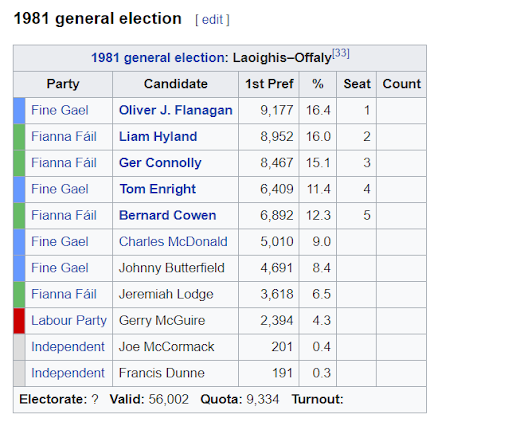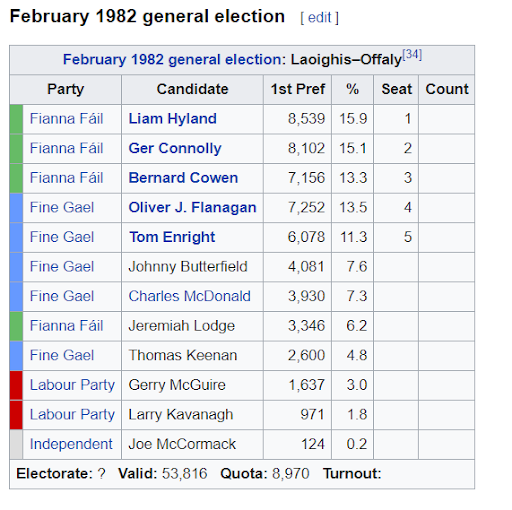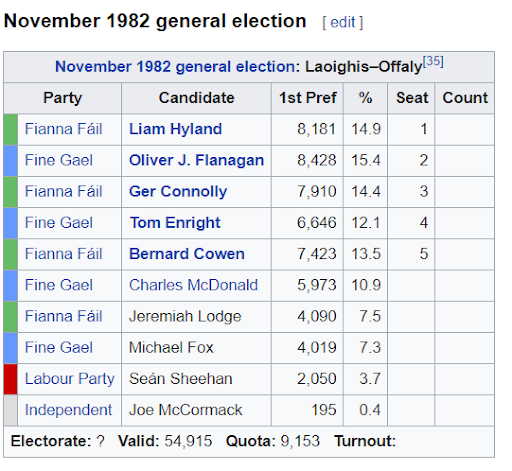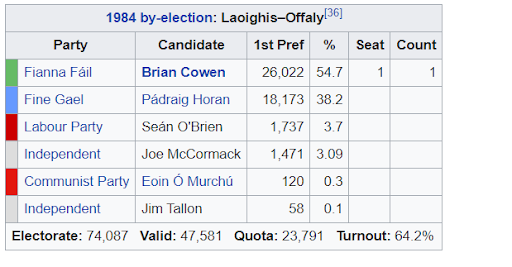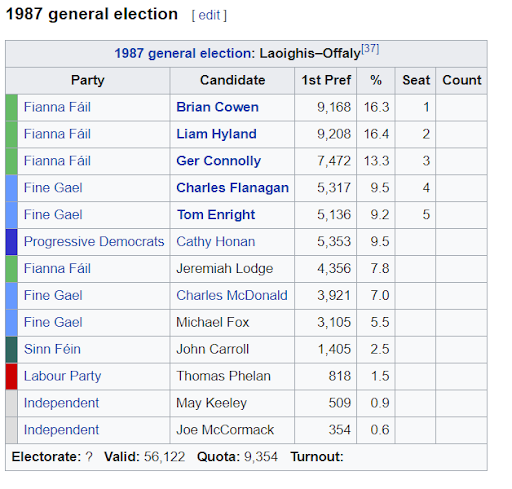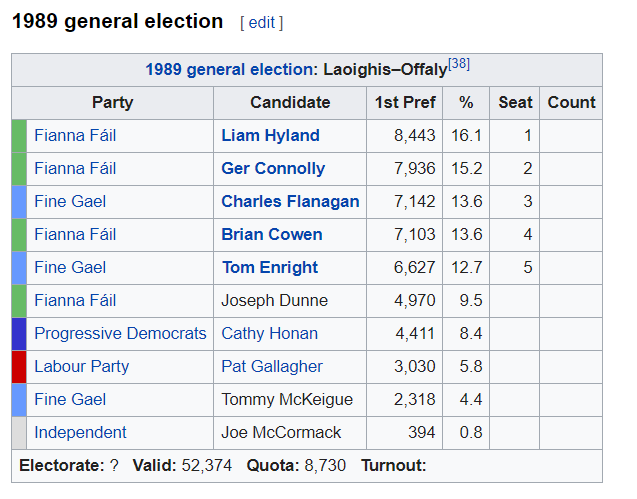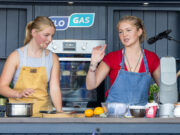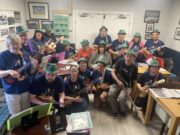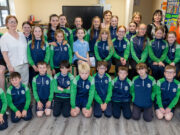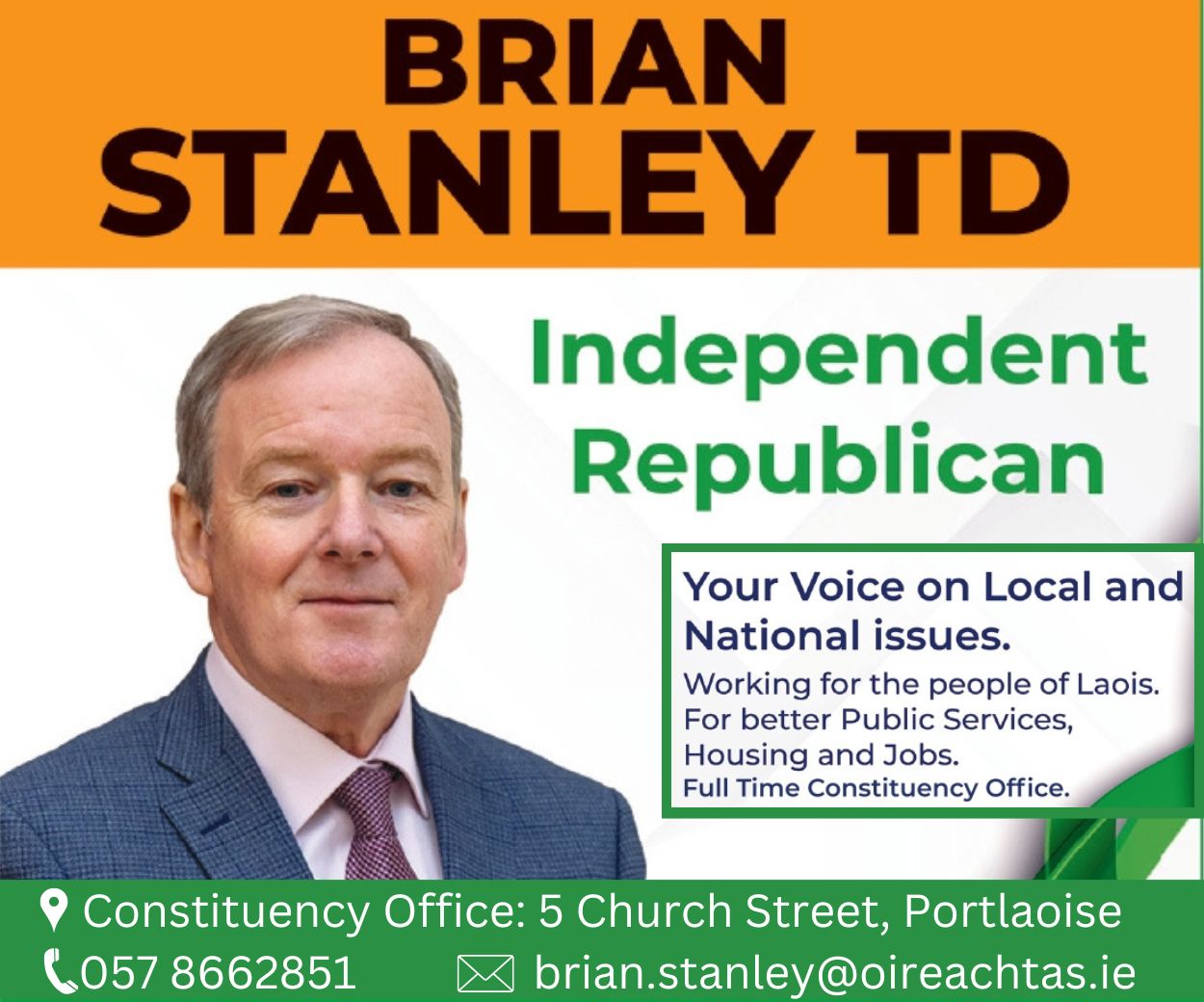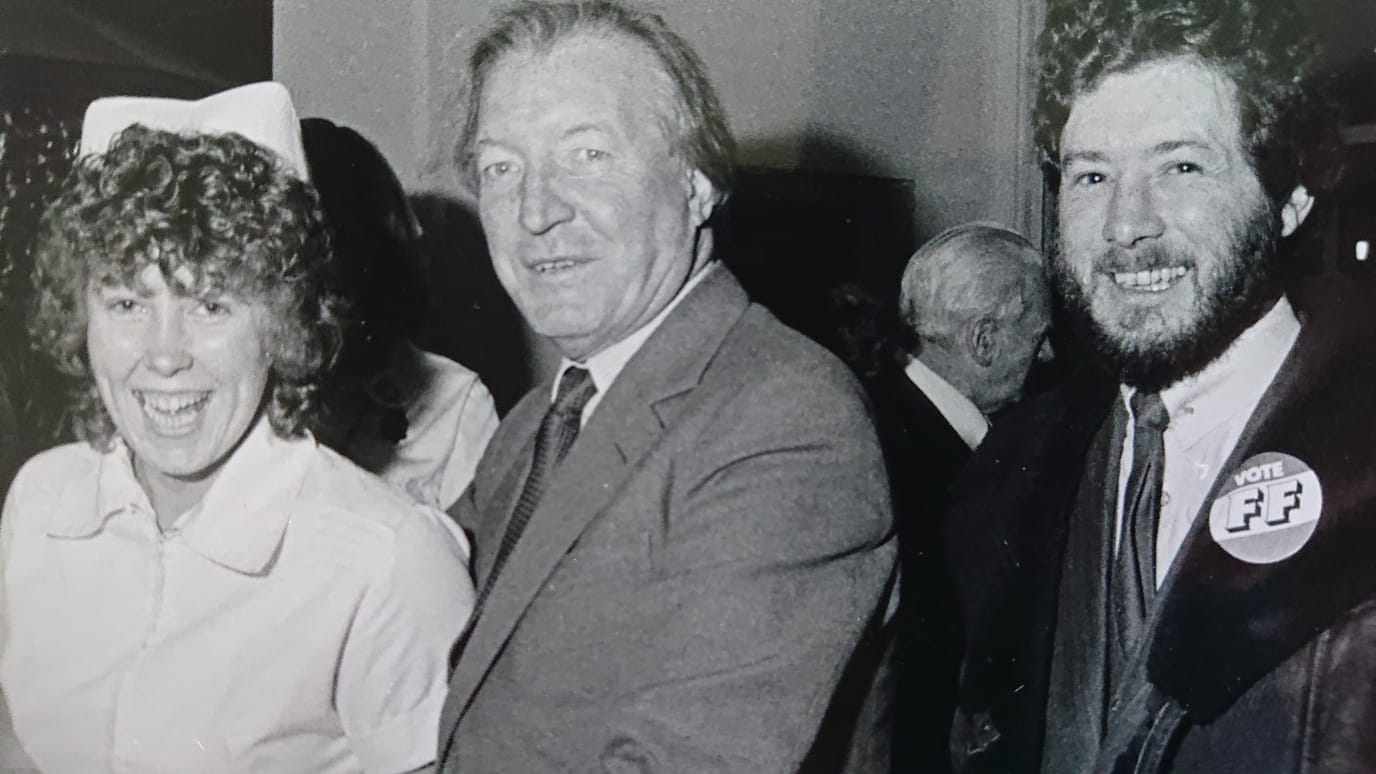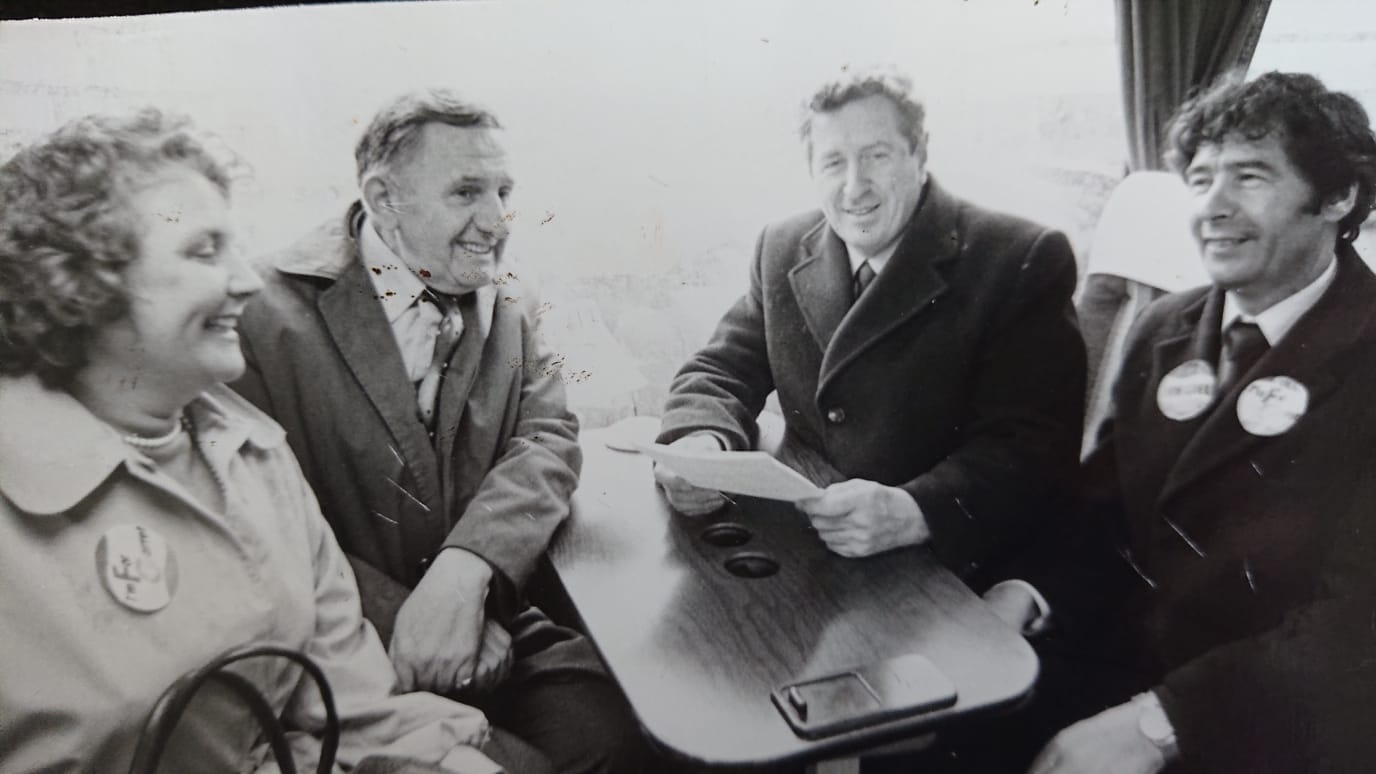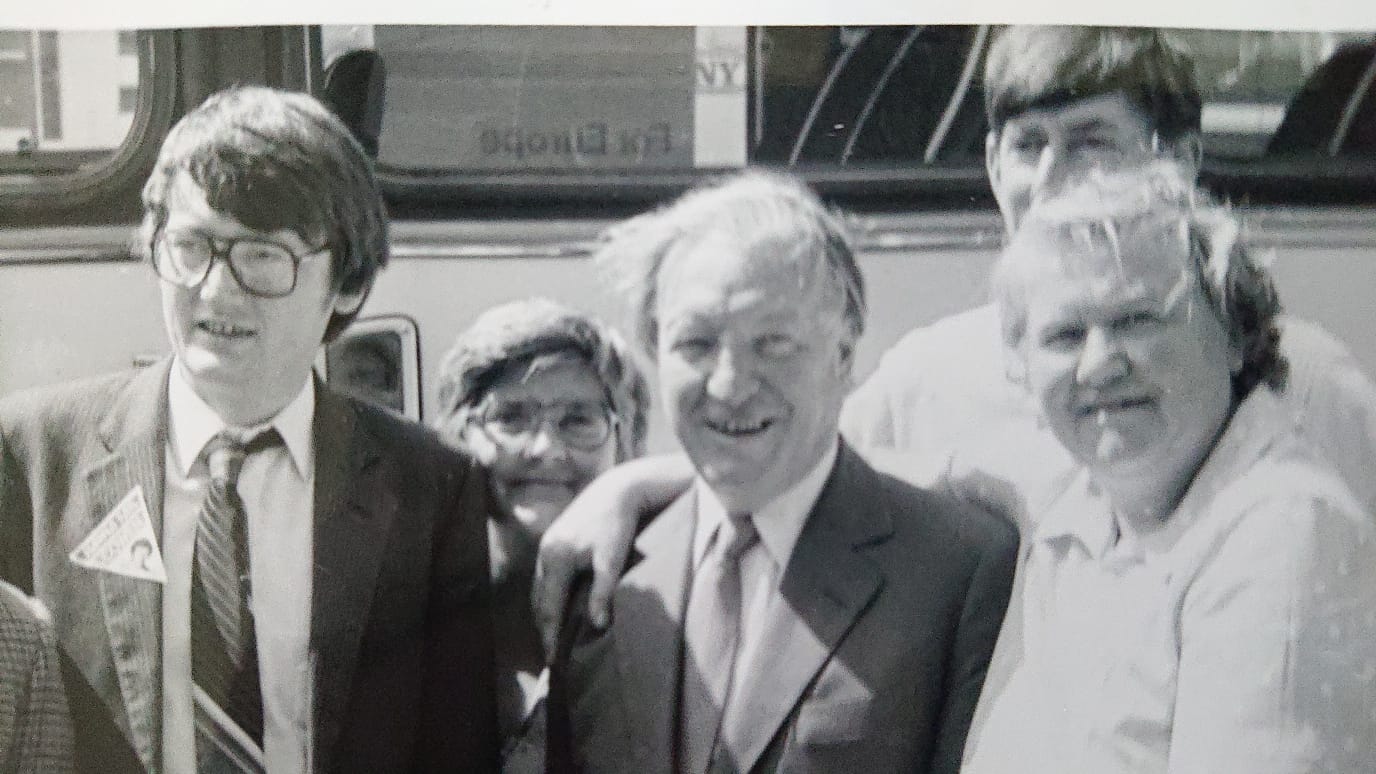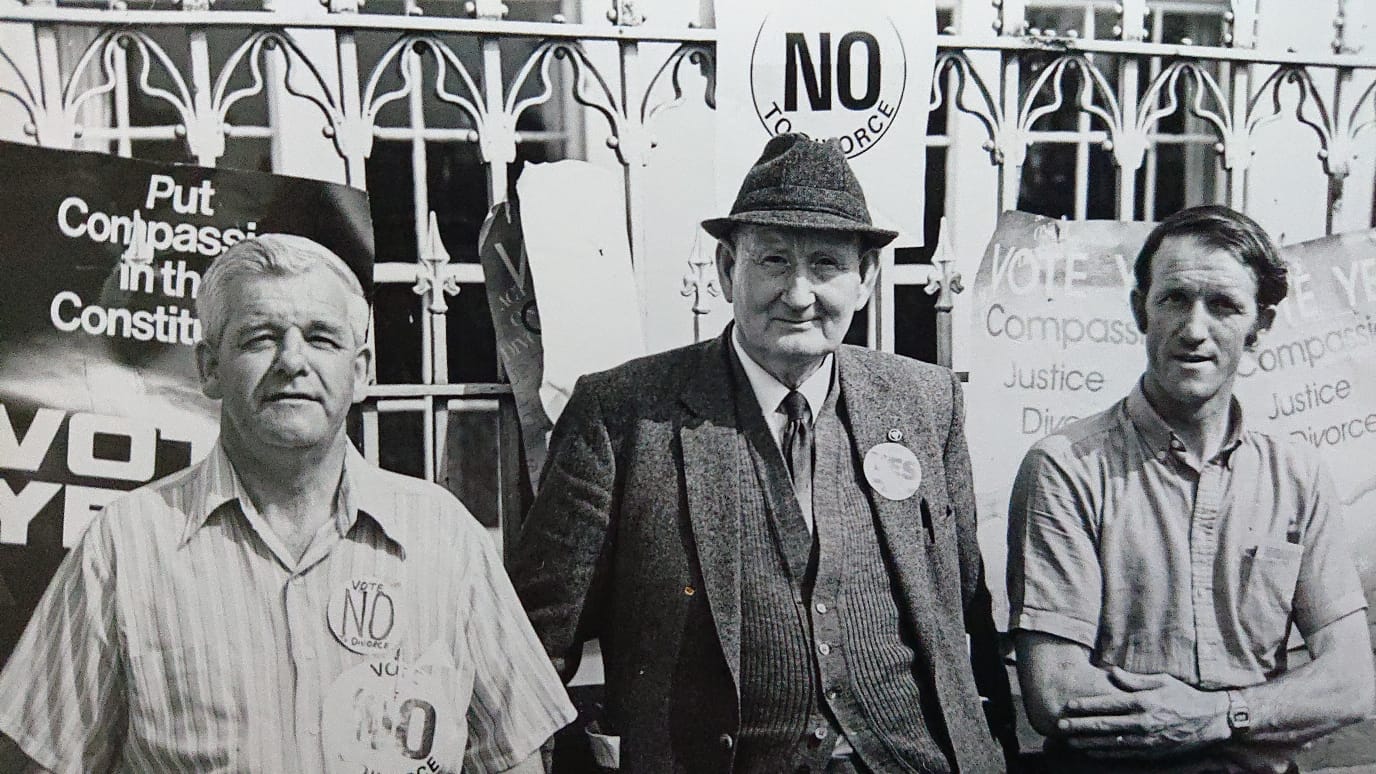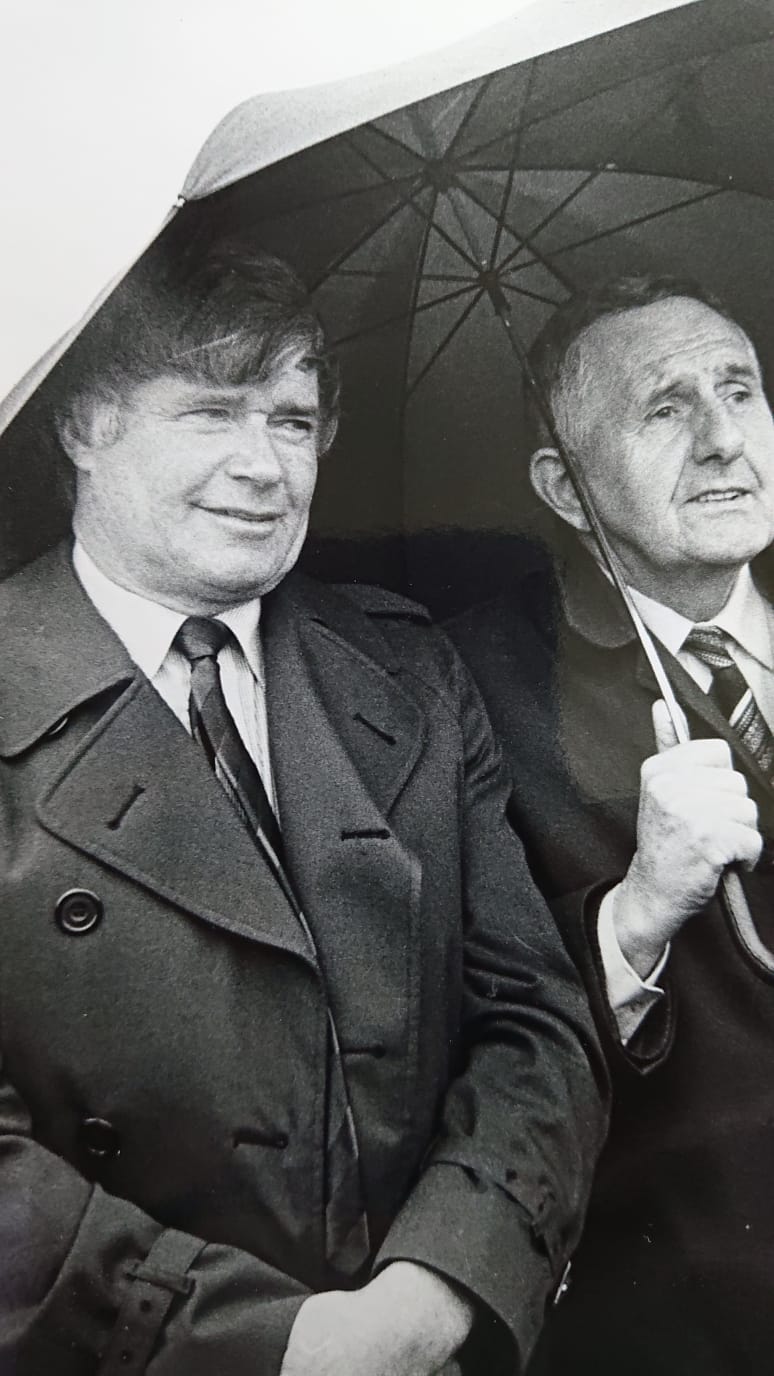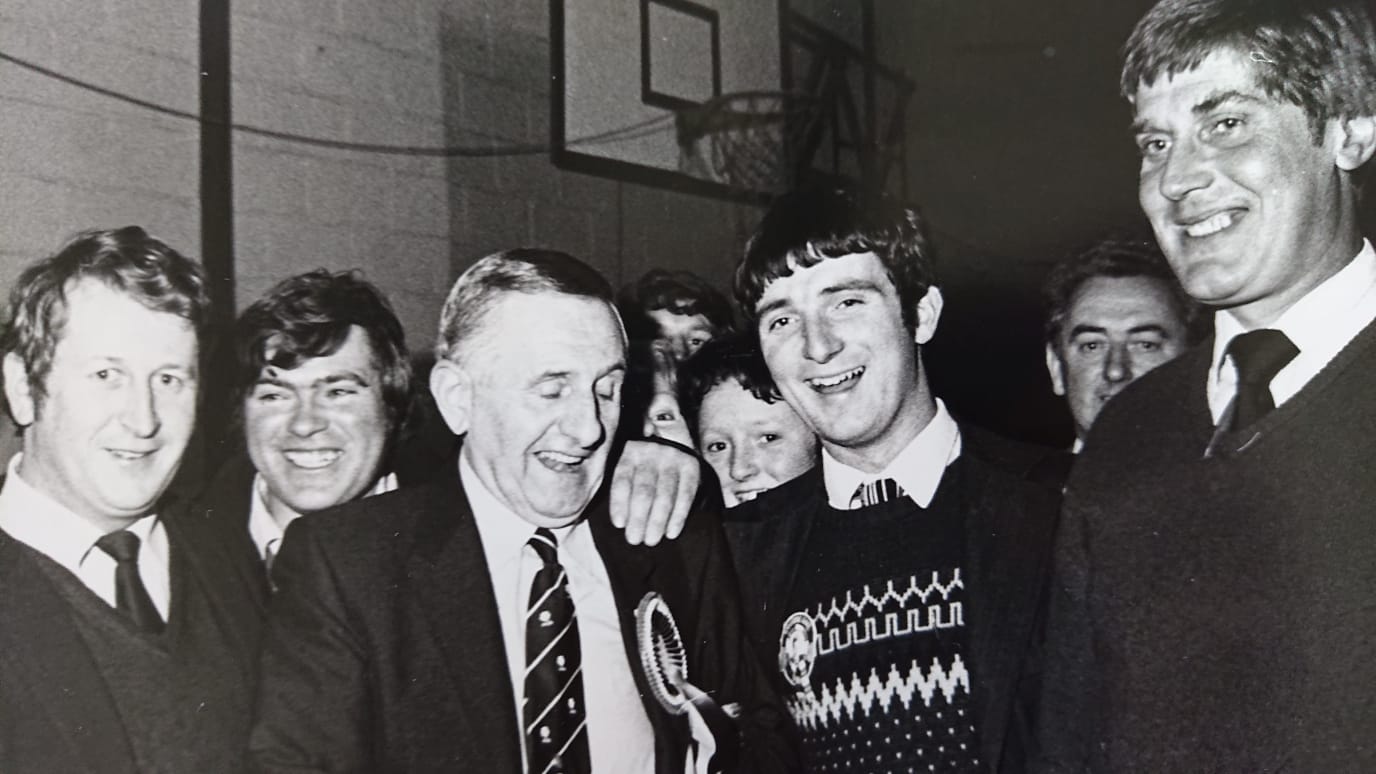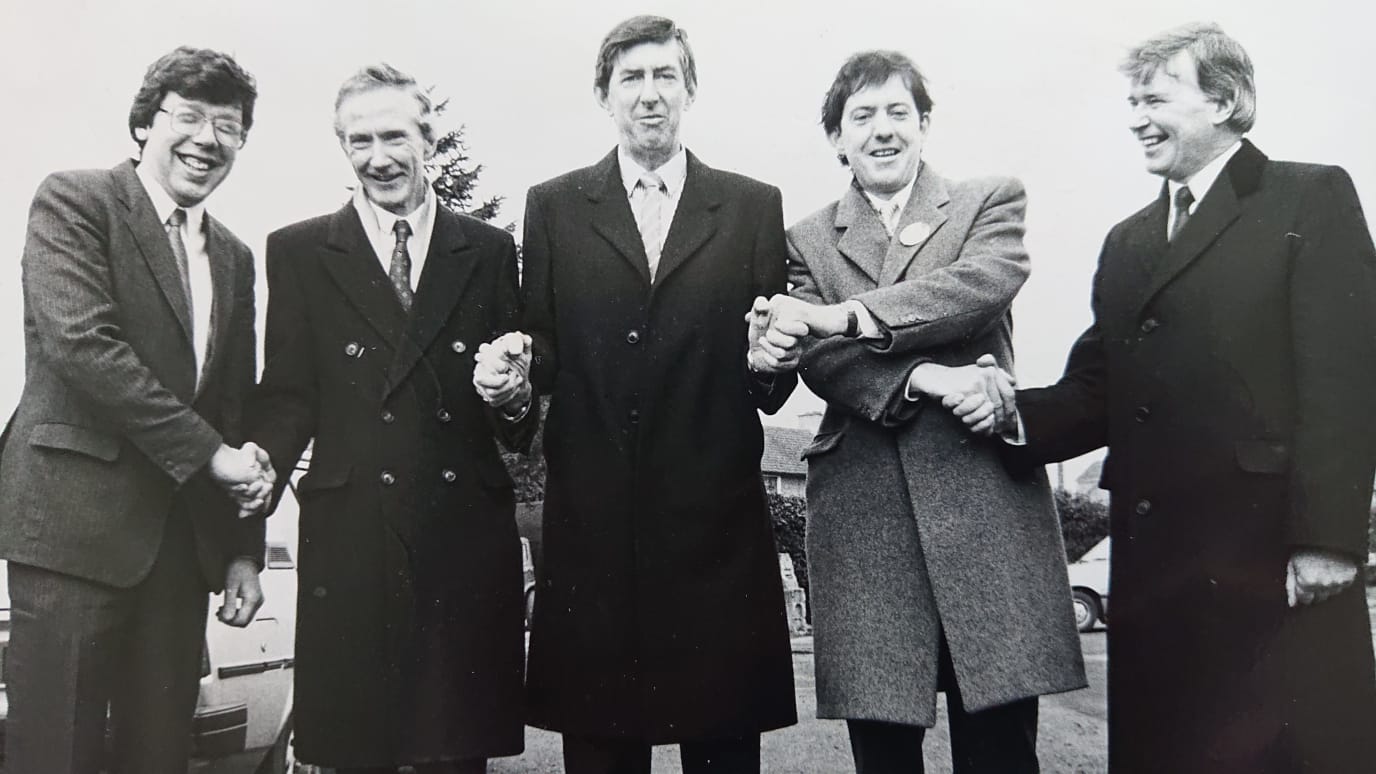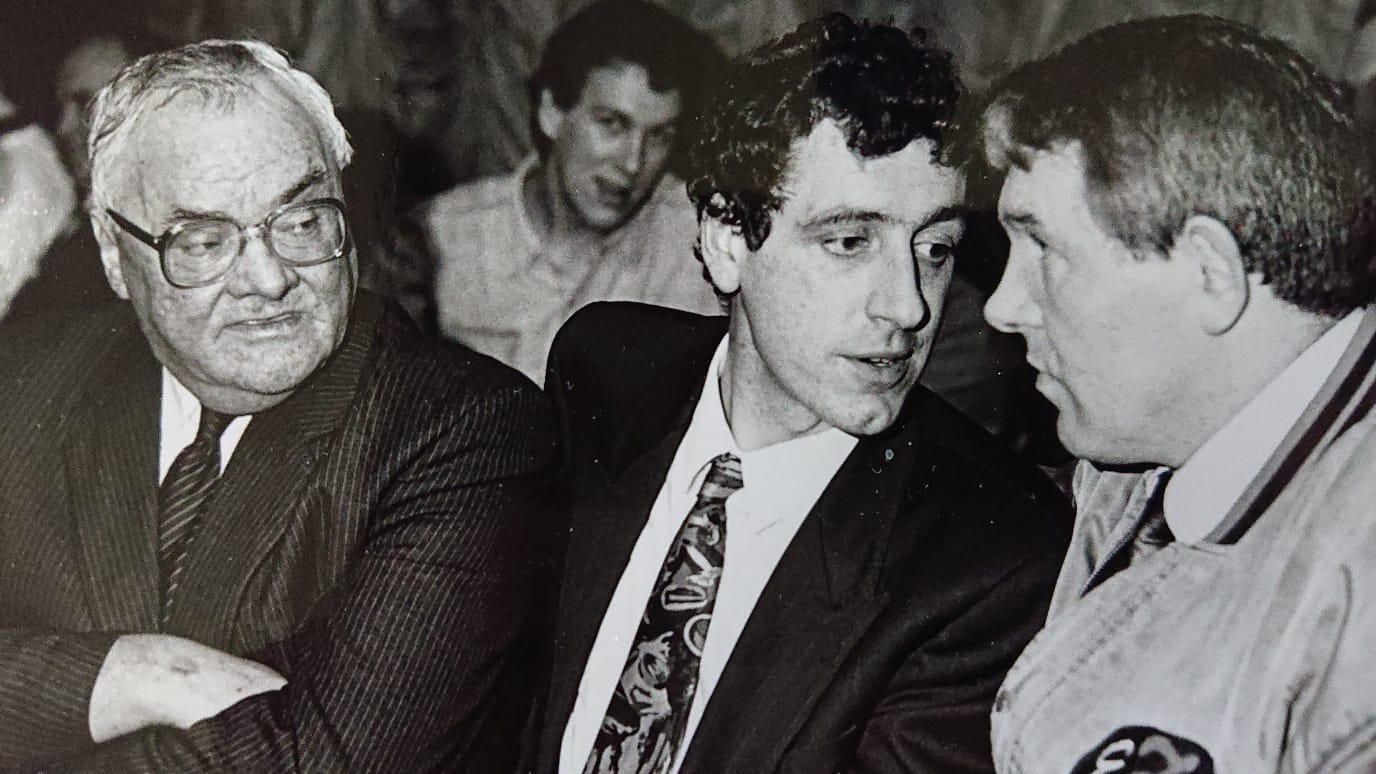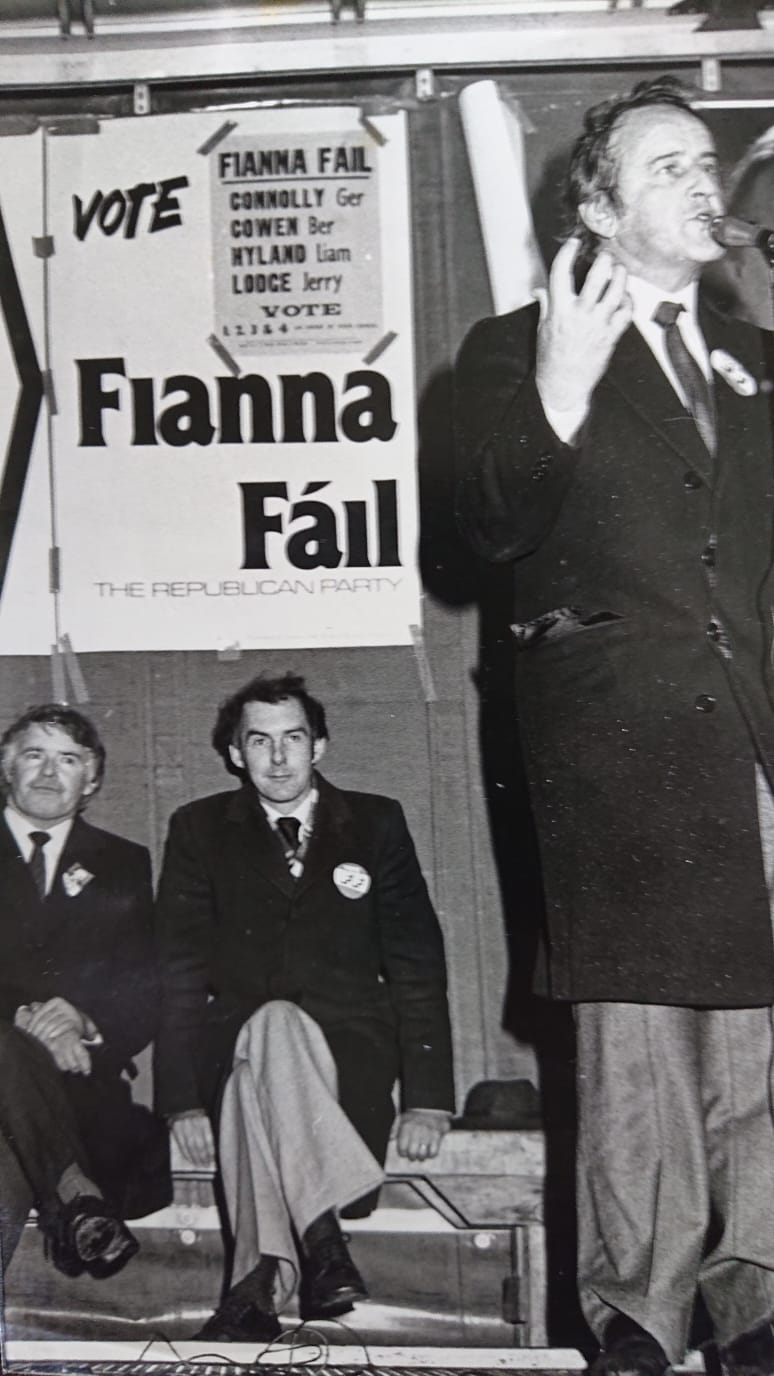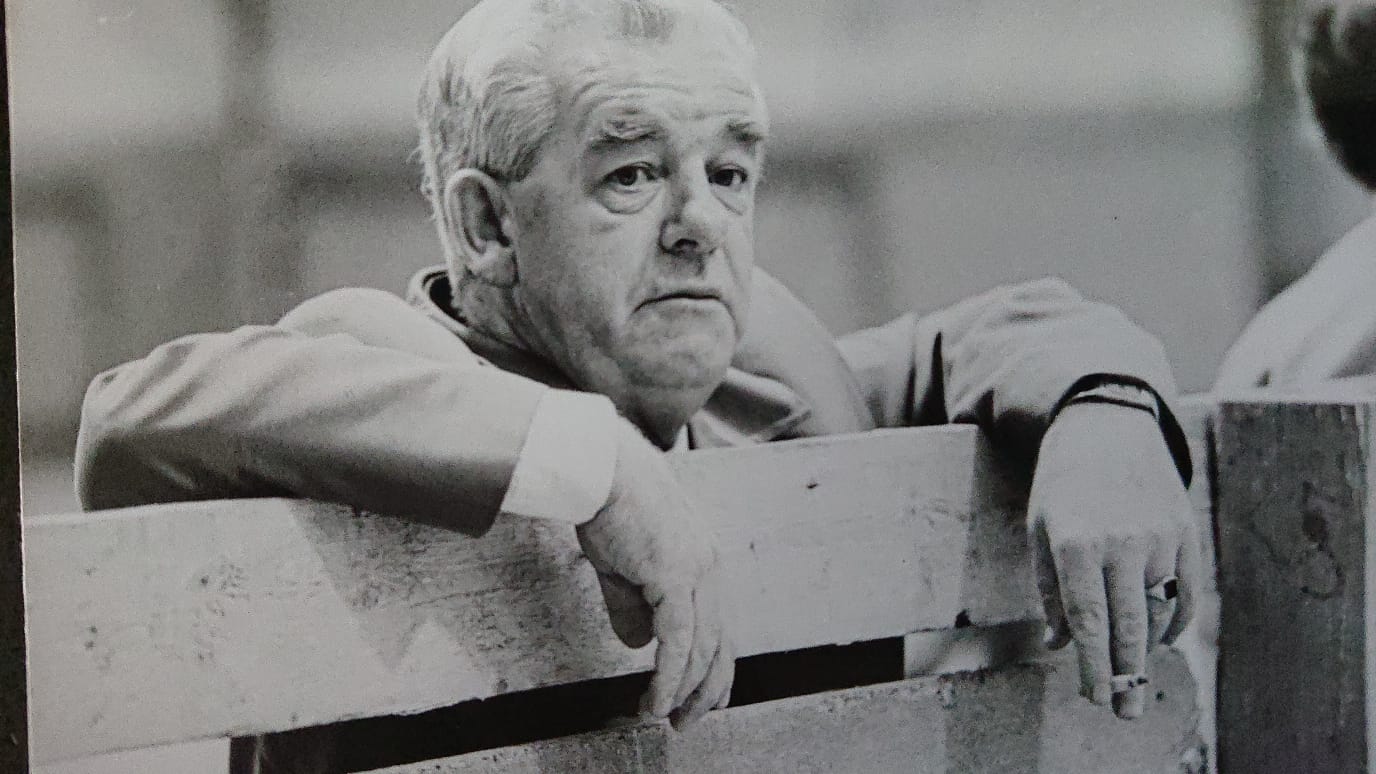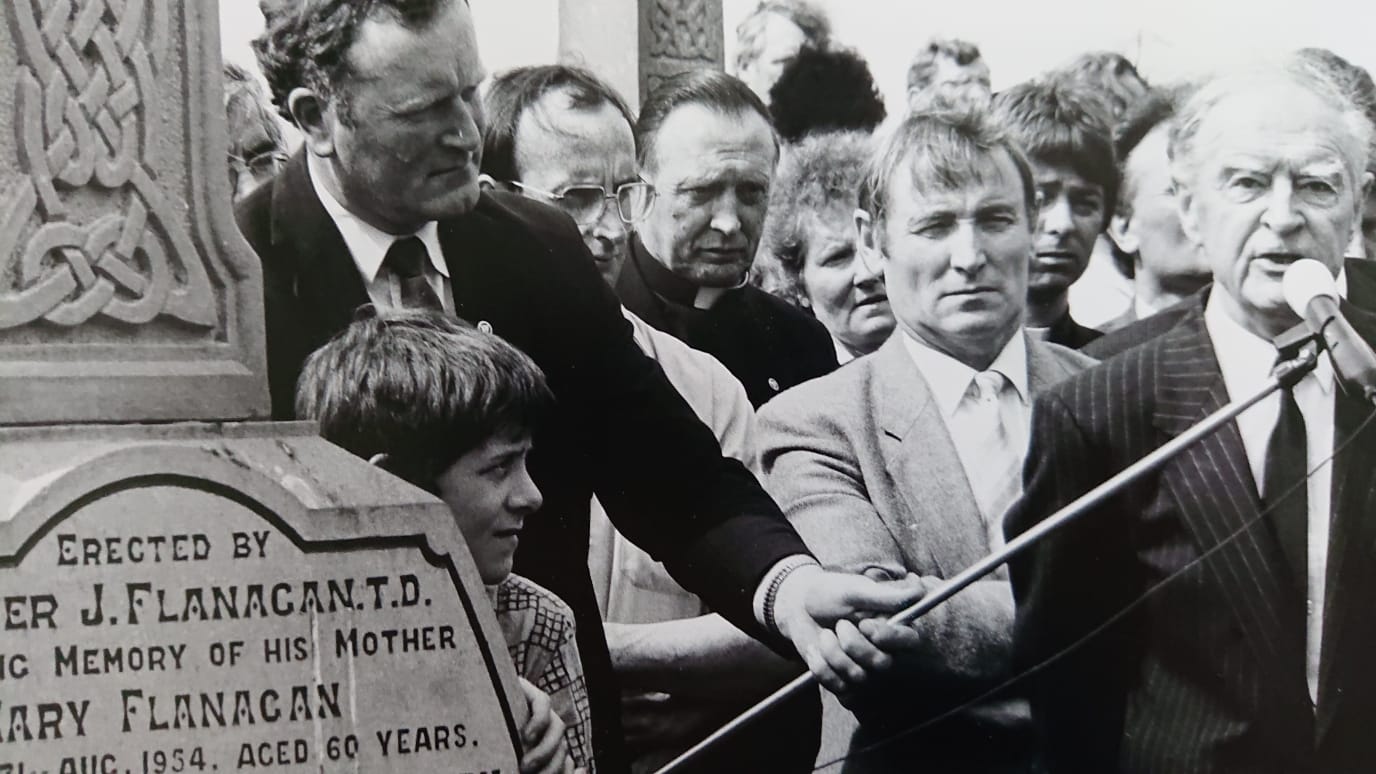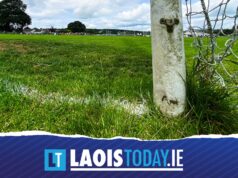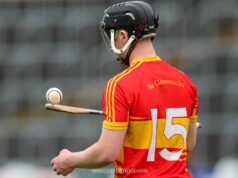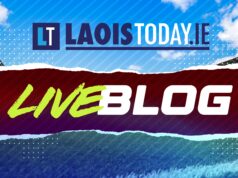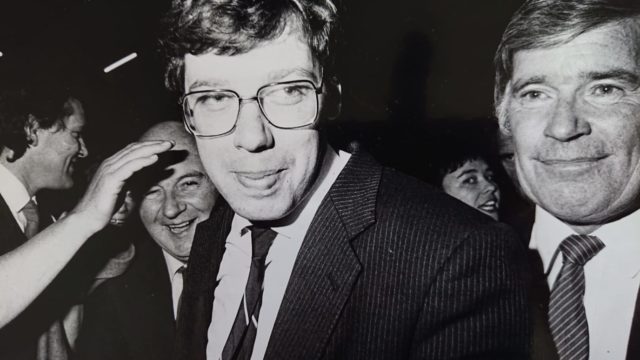
This piece originally appeared on LaoisToday archives in the run up to the 2020 General Election. As this year is the 40th anniversary of that incredible political spell, we look back again at the chaos of the Irish political landscape in 1981 and 1982.
So you think the political landscape is fragile, fractured and fragmented – well you clearly weren’t around in the 1980s.
The 80s, the decade that saw five general elections, and a by-election in Laois-Offaly for good measure.
That’s not to mention The Troubles raging in the North of Ireland and two bitterly divisive pro-life and divorce referendums.
Three of those general elections were held in the space of just 18 months between June 1981 and November 1982. By the close of the decade two sons would replace their fathers as Laois-Offaly TDs in the Dáil.
Nationally, they saw the loveable rogue Charlie Haughey pitted against the righteous reformer Garrett Fitzgerald. Their contrasting personalities and styles could not be any further apart, polar opposites, they divided the country in very often bitter and heated exchanges.
And while they both struggled to get the upper hand and to win the hearts and minds of voters neither of them were ever able to secure an outright advantage or overall majority on the other.
Amid all the political flux, disquiet, social upheaval and unrest, strikes and the North in flames as The Troubles escalated Margaret Thatcher ruled Britannia.
Thatcher tried to smash the IRA and the Hunger Strikes in the H-Blocks as Bobby Sands became the symbol of resistance the world over.
As Haughey and Fitzgerald struggled to bring peace to the North and handle the Iron Lady they had other thorny issues closer to home, none of which was helped by the wholesale political instability.
Famously, following the February 1982 election Charlie Haughey cobbled together what became known as ‘The Gregory Deal’ with the left-wing Independent inner-city TD, Tony Gregory?
Haughey was desperate to become Taoiseach and Gregory who held the balance of power exacted investment to combat poverty and drugs in his Dublin constituency as the price of his support.
It was all short lived as there was yet another election in November. The highly regarded Gregory remained a TD up until his death in 2009, when he was subsequently replaced in the Dáil by his friend and colleague Maureen O’Sullivan.
Then there was the 8th Amendment to the Constitution in 1983, which granted an equal right to life to the unborn. Campaigning in this campaign was often vicious. The impacts were to linger, socially and politically and the 8th Amendment was subsequently repealed in 2018.
Despite Garrett Fitzgerald’s best progressive efforts the 10th Amendment to the Constitution which proposed to permit divorce was roundly defeated in 1986.
This too was a highly emotive and divisive issue reflected in campaign slogans like ‘Hello Divorce – Goodbye Daddy’. Farmers were warned they would lose their land in the event of a divorce.
In Laois the legendary defender of Catholic family values, Oliver J Flanagan, in a last hurrah vigorously campaigned against the introduction of divorce. On the other side of the campaign was his son, Charlie. The No side won in 1986 and those advocating for divorce had to wait for a second referendum to pass in 1995.
The extraordinary Oliver J, the consummate poll topper who had carved out his own piece of history in his own inimitable style ever since he was first elected to the Dáil in 1943, at the age of 23, died the year after that first divorce referendum in April 1987.
He was only 67, and although in poor health he lived to see his son Charlie retain his seat in the general election of February 1987.
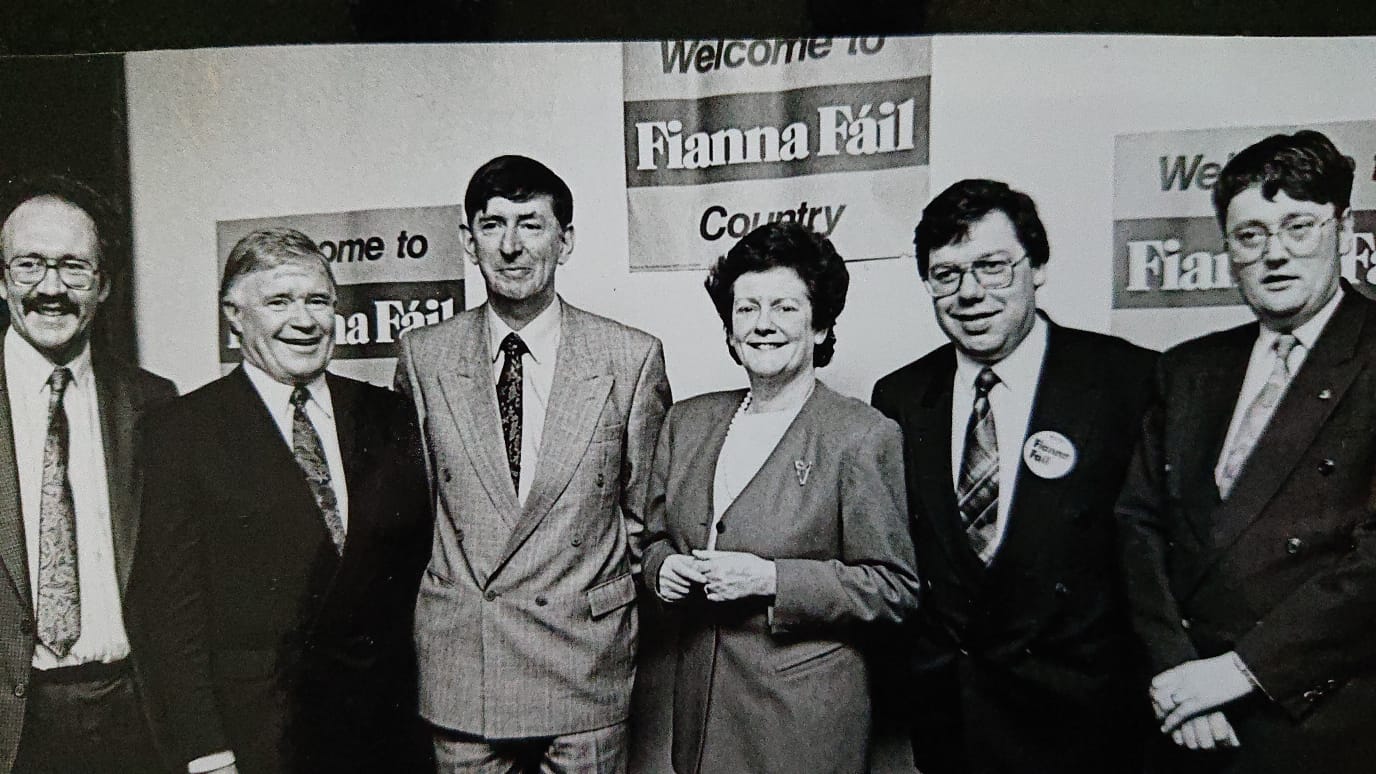
While Oliver J remained invincible in Laois-Offaly over five decades it was Fianna Fáil that ruled the roost. In Offaly it was Birr’s Tom Enright of Fine Gael who was returned to Leinster House on each occasion alongside Oliver J.
No matter what the Party’s tribulations and fluctuations nationally Laois-Offaly resoundingly returned three Fianna Fáil TDs out of five in Laois-Offaly in all five general elections throughout the 1980s. In fact FF held three out the five seats in Laois-Offaly, very often with 50% of the vote in Laois-Offaly in every election from 1977 to 2011.
Others later tried to poach their slogan, ‘Welcome to Fianna Fáil Country’ but Laois-Offaly truly was loyal to them and particularly so in the Faithful County.
Never was this more borne out than in the Laois-Offaly by-election of 1984, due to the death of Ber Cowen.
A 24-year-old Brian Cowen stood on the FF ticket in place of his deceased father. Up against him for Fine Gael was the All Ireland winning Offaly hurling captain, Padraig Horan.
Haughey and Fitzgerald hit the hustings in Laois-Offaly in support of their respective candidates. But no one beat Fianna Fail at the ground hurling back then as Cowen ran out the comfortable winner by over 7,800 votes on the first count.
Padraig Horan did not contest any further elections as Cowen joined Liam Hyland and Ger Connolly in the Dáil for Fianna Fáil. Cowen would of course go on to serve in numerous ministries with his career coming to a chaotic finale in that ill-fated term as Taoiseach until his retirement in 2011.
The Fianna Fáil dominance in Laois-Offaly was also interesting in that it was largely represented by the constant, steady, dependable and conservative approach of two rural based TDs, Liam Hyland from Ballacolla and Ger Connolly from Bracknagh.
With Oliver J Flanagan’s influence on the wane, Fianna Fáil’s Liam Hyland would replace him as the constituency poll topper in 1982.
While two popular Portlaoise councillors Jerry Lodge and Joe Dunne were to play an important role in shoring up the Fianna Fáil support in the county town, neither were to make the breakthrough and make it to the Dáil or Seanad.
Both Jerry Lodge and Joe Dunne over the course of five general elections had to be content to play the role of ‘sweeper’ and help secure that valuable third seat in every election for Fianna Fáil, at the expense of their Fine Gael rivals such as Charlie Mc Donald and Tom Keenan who attempted to break that cycle of FF dominance in Laois-Offaly throughout the 1980’s but in vain.
Labour, Sinn Féin, the Progressive Democrats and Independents also contested Laois-Offaly throughout the tumultuous political years of the 1980s but to no avail. Labour’s Pat Gallagher and Cathy Honan for the PDs did, however, later go on to be elected to the Dáil and the Senate in the 1990s.
The most famous of the Laois independents was perhaps, Joe ‘The Hesh’ McCormack who after a number of failed attempts at the Dáil, pronounced that there were a few thousand liars in Laois, a reference to promised electoral support that never materialised.
The 1980s Laois-Offaly General Election results
